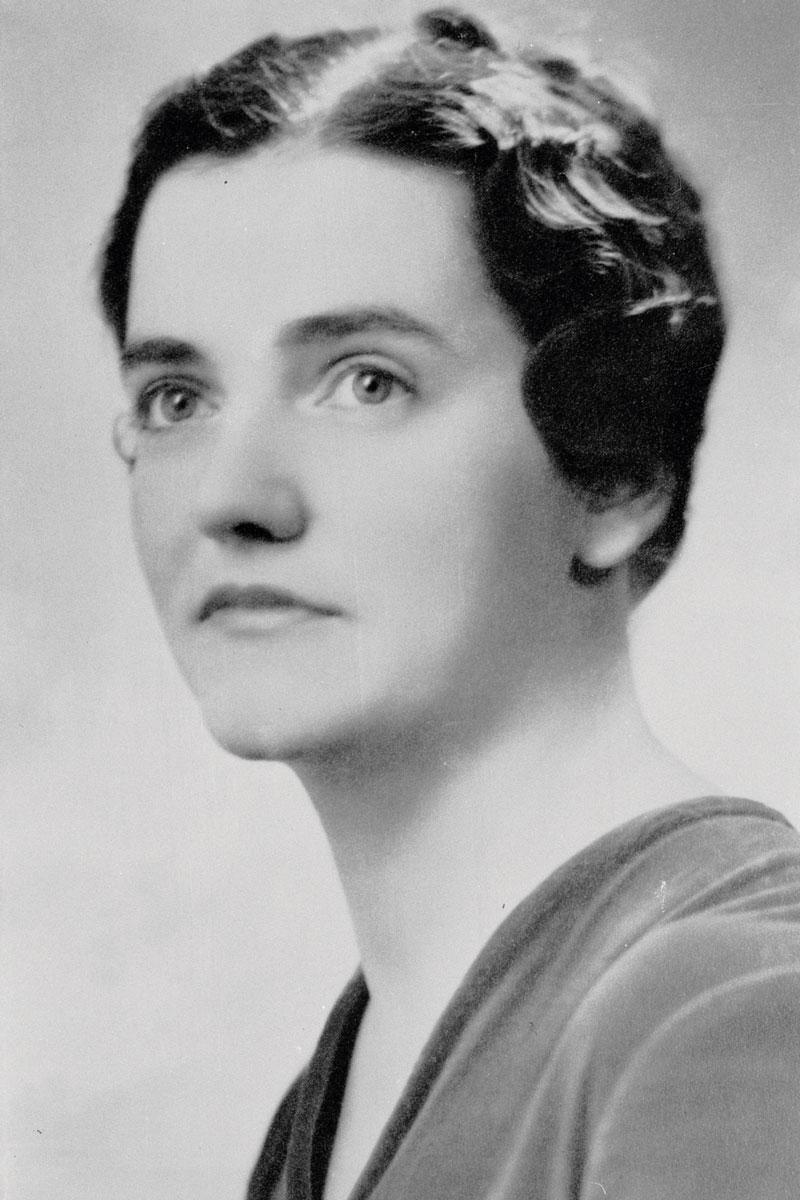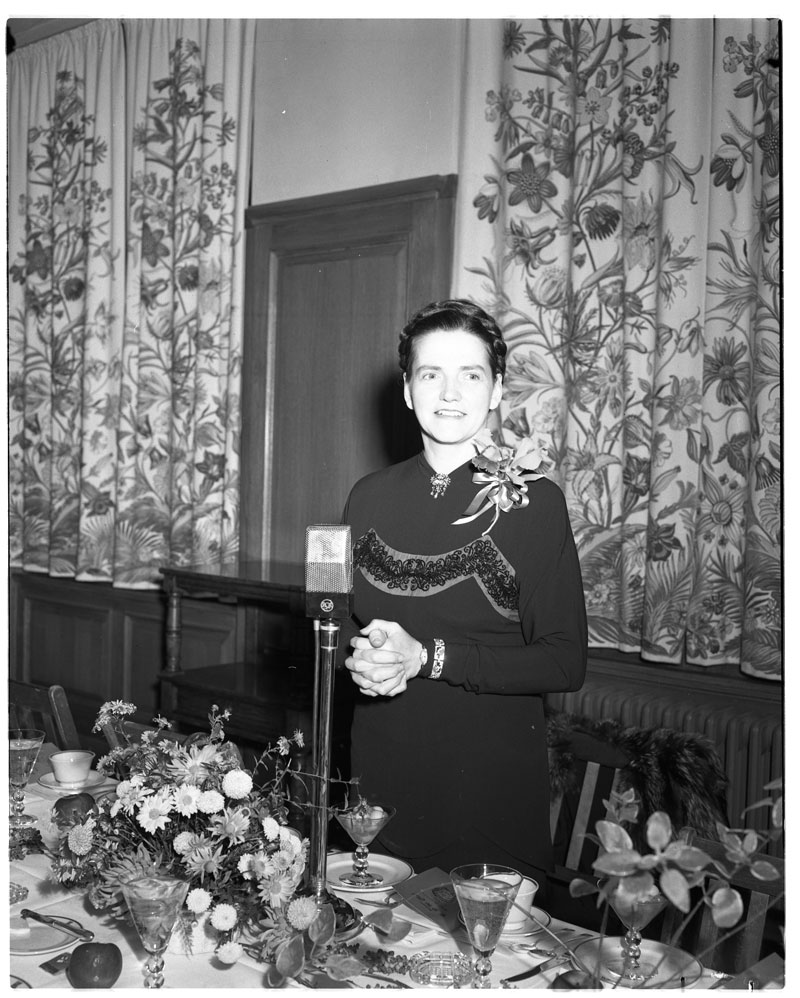People – Ruth DeYoung Kohler I
The Story of a Wisconsin Woman
Ruth DeYoung Kohler I (1906-1953), the impact of a historian and a lifelong champion of women’s rights.
“Each of us is a trustee of the past…with the important task of protecting our heritage and adding something to it.”
“My nine-year newspaper career as reporter, and later as woman’s editor of the Chicago Tribune, culminated in 1937 when I became a Kohler…Since then, I have been devoting by far the largest share of my time to bringing up three young citizens now aged eight, five, and three who are full of vitamins and more ideas than any first-string city editor,” commented Ruth DeYoung Kohler I in 1940. That summation from Ruth was a humble way of describing her many talents and contributions.
In her first show on her weekly broadcast on WGN Radio in Chicago, Ruth declared, “It is with women in their homes and out, in their clubs, public life, in their professions, their vocations, avocations, that this series of broadcasts is to concern itself. What are they thinking, what are they doing, what is their place in this year 1940?” As a young journalist, her impact and creativity were felt immediately, and her following grew quickly. That impact continued in her role as wife of Herbert V. Kohler, Sr. and mother of Herbert Jr., Frederic, and Ruth II, but her perspective on “the family” was much broader and more visionary than its formal definition. “Nation is only family written large,” Ruth said in 1940. She referenced her brother-in-law, Walter J. Kohler, the dynamic second-generation leader of Kohler Co., “he always knew that community – in the true sense – means something we do and hold in common. Kohler Village did not belong to Walter Kohler. He belonged to the Village.”
Ruth made sure her time was dedicated to empowering her family, the surrounding community, and women throughout the country. She was the founder and chair of the Kohler Woman’s Club, which she grew to nearly 1,000 members; commissioner of the Kohler Girl Scouts; a cofounder with her husband of the Kohler Foundation; and pioneer of the long-standing Distinguished Guest Series (DGS) that continues to bring culture, music, and entertainment to the area. At that time, the DGS performers of color were often turned away by a Sheboygan hotel, but she made sure they had a welcoming place to stay – her home. Her focus on inclusion, preserving and sharing the legacies of influential women, and conserving historical places around the state is well-documented.
Ruth authored two books, Wisconsin Historical Sites and The Story of Wisconsin Women. The Wade House preservation project in Greenbush, Wisconsin, was a symbolic example of the integration of Ruth’s values. It was important to her for the same reasons that journalism and community were… it would make history available to the public in an interactive and accessible way. The house was important to Ruth for the same reason family was – it allowed her to preserve something for future generations to visit, learn, and appreciate.
During the project Development in the early 1950s, Ruth profoundly commented, “Each of us is a trustee of the past…with the important task of protecting our heritage and adding something to it.” This was true in preservation, women’s rights, and family development.
Tragically, Ruth passed away at the age of 47. In a very short time, she had made a significant impact as a progressive journalist, advocate, and community leader. Her approach to life and character was clear, “We are what our country, our day, and our generation makes us, but more than this, our country, our day, and our generation are what we make them.” Ruth practiced that approach as evident in an observation from her daughter, Ruth DeYoung Kohler II, “I hope they remember her strength, her caring for the community, and for the family well beyond the community. In the middle of winter, she would take a big, huge hose, like a fire hose, and turn the big square in the village into an ice rink for all the kids and adults. She didn’t ask, she just did it, for the welfare of all. And it is that kind of thing that I think will live on.”

